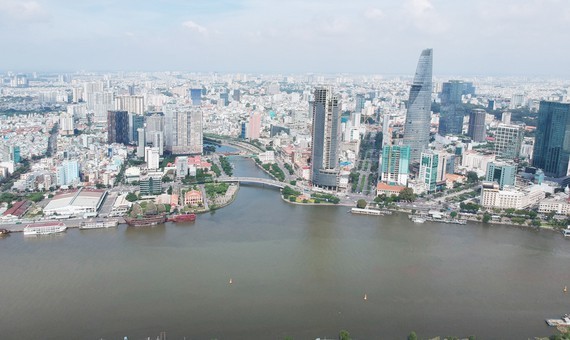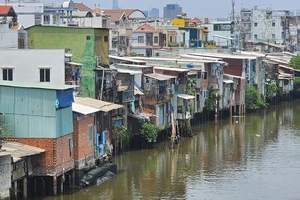
In reality, this has made impact on the Southeast Asian country as HCMC currently accounts for 23 percent of Vietnam's gross domestic product (GDP) and 20 percent of foreign direct investment.
According to the Asian Development Bank’s study, water from contaminated canals and rivers will flow into paddy fields and other public space when the city suffers high tide by 2050. This will threaten agricultural production and community health. Ecological systems in HCMC work to prevent tide of the ocean from overflowing inland; however, land for ecological systems has shrunken seriously because of changes and encroachment of land.
Meantime, natural ecosystem in the upper reach of Dong Nai River has been damaged to a great extent due to various human activities including deforestation resulting in flash flood and erosion, fast urbanization leading to increase in temperature and inundation which threaten water supply stations.
Last but not least, HCMC’s raw water is mainly extracted from surface water of Dong Nai and Saigon river. However, Dong Nai river water is seriously polluted because of human socio-economic impact. Worse, climate changes have greatly influenced the city’s water supply and the city has not had alternative measures to cope with shortage of raw water sources.
After analyzing the cause of regression and contamination of water sources at present, a group of researchers of the Nong Lam University said that the underground water sources become saltier and contaminated with pesticide. Overexploitation of underground water without permission has resulted in far decline in groundwater levels meanwhile most of surface water in canals and rivers are seriously polluted due to human production and daily activities.
Garbage and untreated wastewaters are discharged and thrown into rivers a lot; therefore, local administrations should raise people’s awareness of environment protection.
For protection of water resources, Director of the Institute for Circular Economy Development (ICED) Associate Professor Nguyen Hong Quan supposed that close coordination between local administrations and synchronous investment for infrastructure to management are needed. State competent agencies must maintain regular supervision to manufacturing establishments as well as issue strict penalties on violators which intentionally breach the wastewater discharge regulation and exploit underground water without permission.
Furthermore, local administrators should encourage residents not to throw garbage produced from daily activities and animal waste into canals and rivers.
Director of the Department of Natural Resources and Environment in HCMC Nguyen Toan Thang said that the city is planning to take raw water from Dau Tieng and Tri An lakes for water supply companies. Additionally, Saigon Water Corporation (Sawaco) and Dutch water company Vitens Evides International (VEI) have signed a partnership agreement. VEI will support Vietnam on techniques and implementation of some projects adapting to climate changes as well as provide five kinds of smart water measurement devices to reduce leak of water.
Especially, to protect the environment in the river basin in contiguous provinces. Ho Chi Minh City authorities have signed agreement on water management with their peers in the southern provinces of Ba Ria- Vung Tau, Dong Nai, Binh Duong, Tay Ninh, Long An, Tien Giang, Binh Phuoc and the Central Highlands Province of Lam Dong.
Based on the agreement, the city Department of Natural Resources and Environment will work with each province to create information network so that inspectors can together pay regular visits to violating establishments to impose fines on them.
























